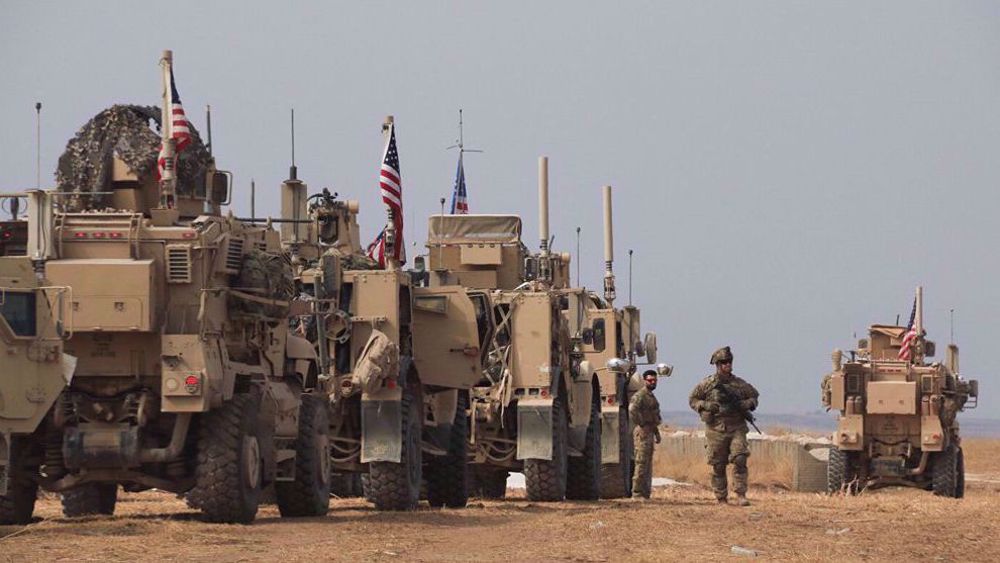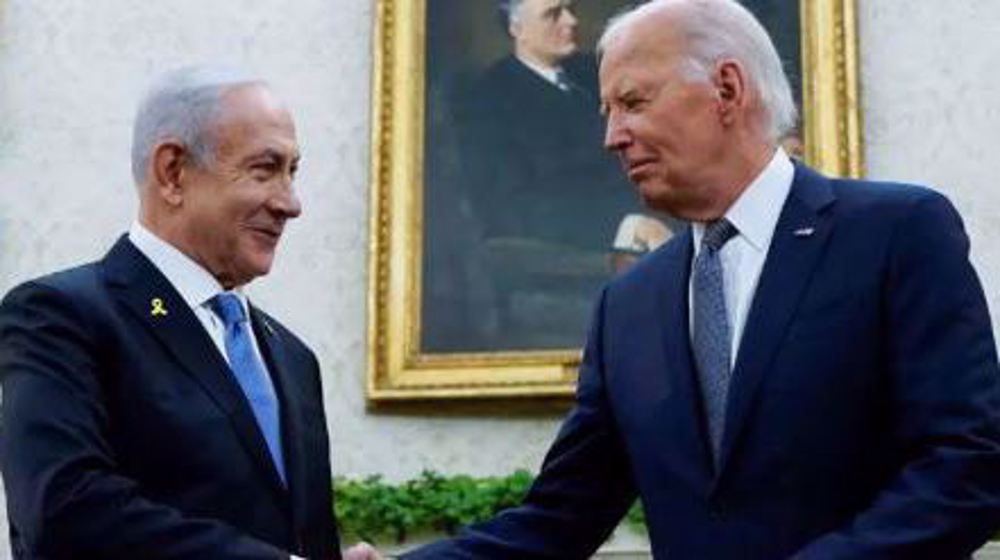Pentagon chief says more raids key to new Iraq, Syria strategy
US Defense Secretary Ashton Carter described elements of a revamped campaign strategy in Iraq and Syria, saying more raids will be at the center of the fight against the Daesh (ISIL) terrorist group.
In testimony before the Senate Armed Services Committee on Tuesday, Carter said US raids will be focused primarily on the Iraqi city of Ramadi and Raqqa in northeastern Syria, both under ISIL control.
"The changes we're pursuing can be described by what I call the 'three Rs' — Raqqa, Ramadi and Raids," he told the Senate panel.
More ground raids, however, carry higher risks for American military personnel and would raise questions of “mission creep” in the new war in the Middle East.

A Special Operations commando, Master Sergeant Joshua Wheeler, was killed last week in a US raid to rescue hostages held by Daesh militants in Iraq’s Kirkuk Province.
“We won’t hold back from supporting capable partners in opportunistic attacks against the (ISIL), or conducting such missions directly, whether by strikes from the air or direct action on the ground,” Carter said.
President Barack Obama’s administration is reconsidering the strategy against Daesh after setbacks including the failure of a costly “train-and-equip” program for US-backed militants in Syria and a lack of progress in recapturing territory from terrorists in neighboring Iraq.

Carter said the new approach would equip a select group of militant leaders versus the halted Pentagon program to train and arm a proxy force of 15,000 militants over three years.
"While the old approach was to train and equip completely new forces outside of Syria before sending them into the fight, the new approach is to work with vetted leaders of groups that are already fighting ISIL and provide equipment and some training to them and support their operations with air power," he said.
The United States also will intensify its air campaign with a focus on “high-value” ISIL targets and the oil infrastructure that funds the terror network, the Pentagon chief added.

The proposed measures were generated by field commanders and thoroughly examined by Obama’s senior national security advisers, including Carter and Secretary of State John Kerry, in a series of meetings over the past few weeks, according to The Washington Post.
The revised strategy, still under discussion, would put a limited number of Special Operations forces on the ground in Syria and position American “advisers” closer to combat in Iraq.
VIDEO | Press TV's news headlines
VIDEO | Palestinian women, life under Israeli violence
Hezbollah strikes Israeli bases with drones, missiles
Iran calls for action in defense of Palestinian women
VIDEO | Sydney protests demand action as Israel faces ICC warrant for war crimes
VIDEO | Arrest warrant for Israeli war criminals
Iran to host ‘important’ ECO foreign ministers' meeting in Mashhad
Wounded in Israeli strike, health of Kamal Adwan Hospital's director worsens










 This makes it easy to access the Press TV website
This makes it easy to access the Press TV website